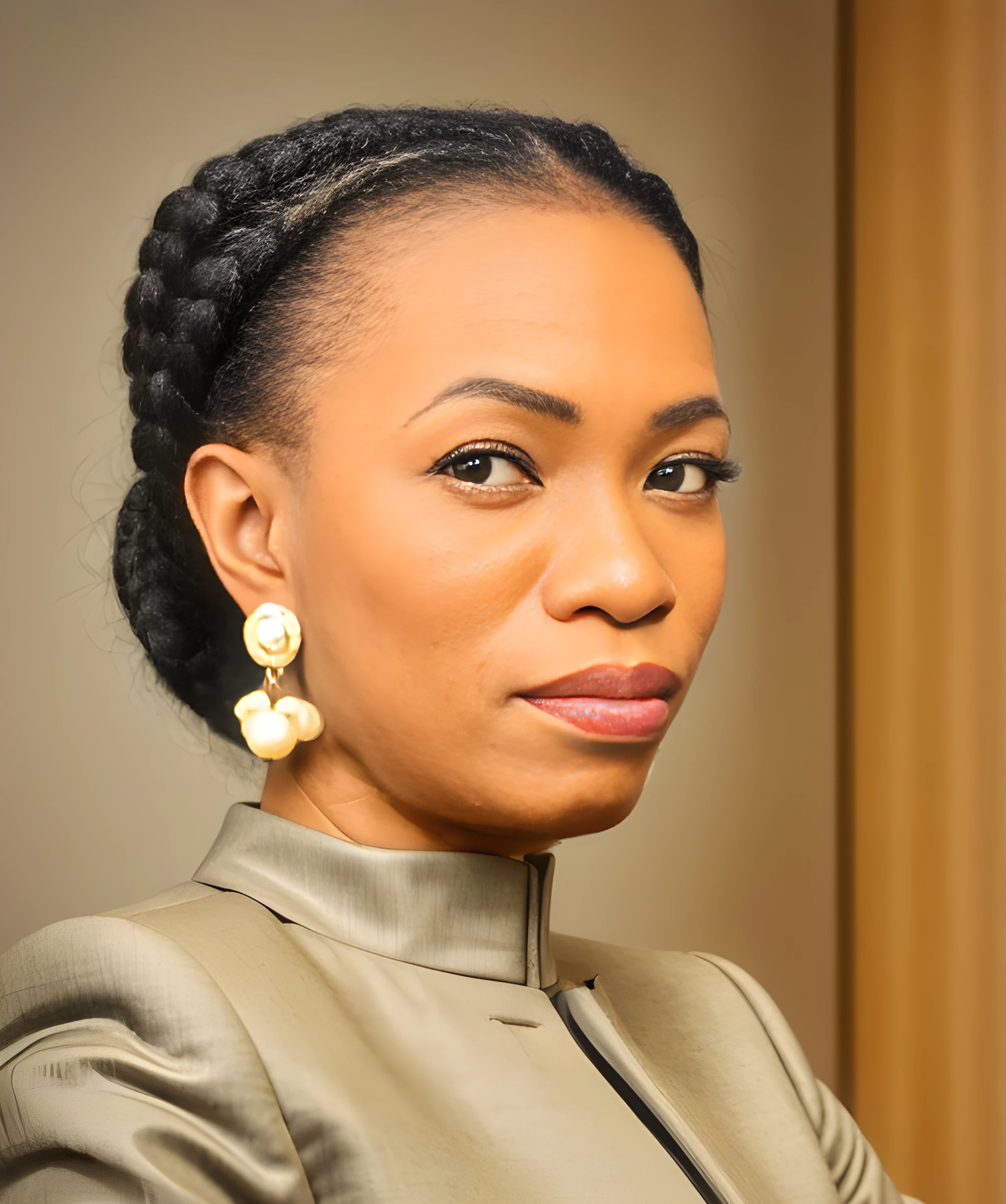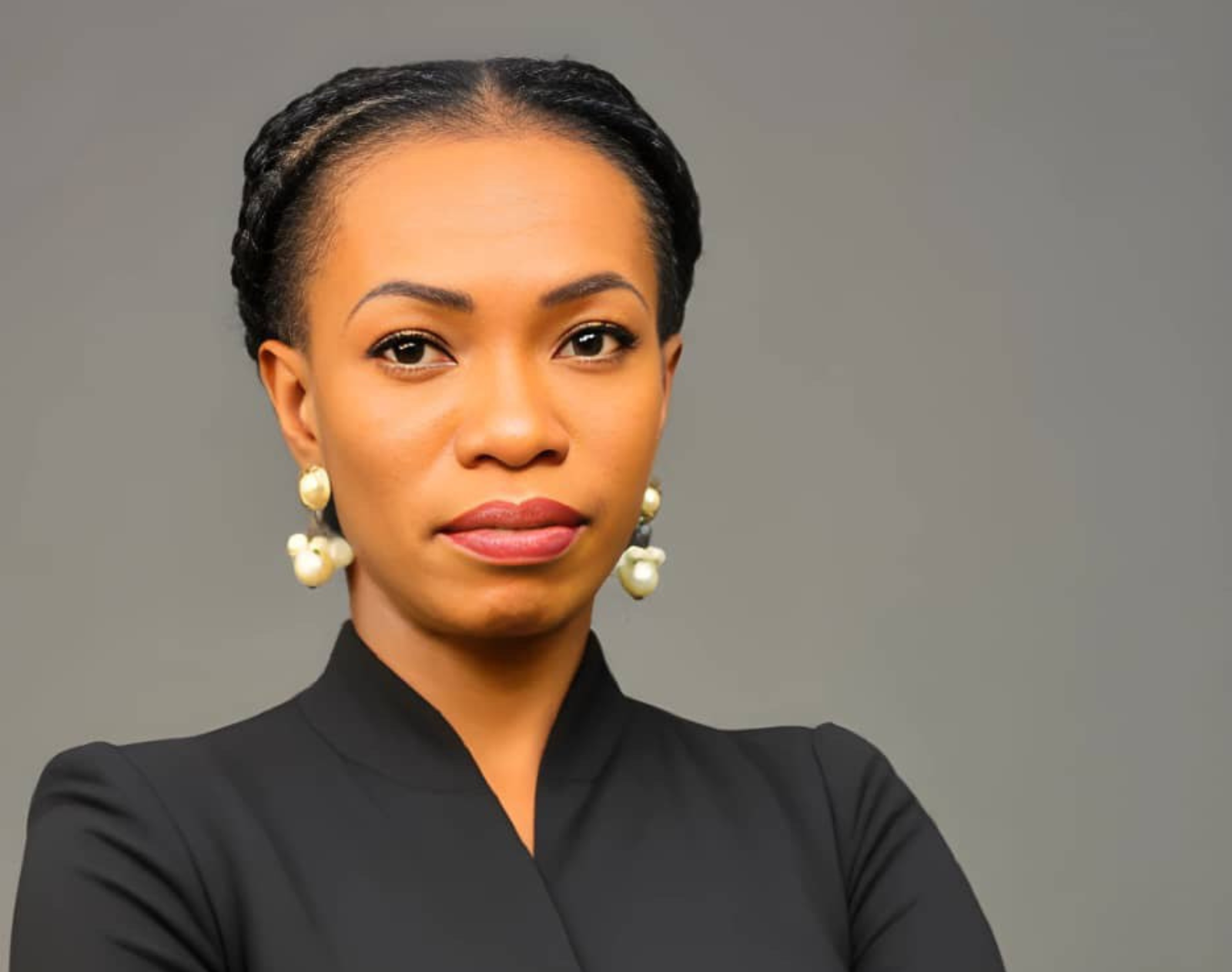Lesijolu Eite Eric-Nwabuzor is Executive Director at The Comms Avenue, a pan -African capacity-building and networking platform for communications professionals across the continent and beyond. Her passion is unlocking human potential, crafting compelling narratives, and leveraging resources for sustainable impact.
The world is getting more complicated, with climate change, global tensions, economic inequality, and the ongoing impact of COVID-19 but, in the midst of all this, Africa has a chance to shine. You might say the continent is at a turning point.
What were once seen as weaknesses – a young population, untapped resources, and a complex history – are now becoming major strengths. Africa’s resilience and creativity have put it in a prime position to take the lead on the global stage.
In the wake of the Trump administration’s decision to cut aid to Africa, which totalled approximately $7.5 billion as far back as 2020, the continent has been forced to confront a stark reality: reliance on external support is no longer a viable strategy.
This shift is tough, but it is also an opportunity for Africa to tell its own story and drive growth on its own terms.
Africa’s Unique Advantages
Africa’s potential lies in its ability to turn perceived disadvantages into strategic advantages. A few are listed below:
1. A Youthful Population: The Demographic Dividend
Africa is the youngest continent in the world, with 70% of its population under the age of 30.
This demographic dividend is a goldmine of innovation, creativity, and productivity. Unlike aging populations in Europe, North America, and parts of Asia, Africa’s youth represent a dynamic workforce and consumer base that can drive economic growth for decades to come.
For example, countries like Nigeria and Ethiopia are already leveraging their youthful populations to build thriving tech ecosystems. Lagos, often referred to as the “Silicon Valley of Africa,” is home to over 400 tech startups, while Addis Ababa is emerging as a hub for innovation in agriculture and renewable energy.
However, to fully harness this potential, African nations must address challenges such as unemployment and skills gaps.
Strategic communications can play a key role in promoting education and vocational training initiatives, ensuring that the youth are equipped to lead the continent’s transformation.

2. Abundant Natural Resources: A Foundation for Sustainable Growth
Africa is home to 30% of the world’s mineral reserves, 65% of its arable land, and vast renewable energy potential.
These resources, if managed responsibly, can fuel industrialization, create jobs, and drive sustainable development.
Take the Democratic Republic of Congo (DRC), for instance. The country holds over 70% of the world’s cobalt reserves, a critical component in electric vehicle batteries.
By developing local value chains and attracting investment in processing and manufacturing, the DRC can position itself as a key player in the global green energy transition.
Yet, resource management remains a challenge, with issues like corruption and environmental degradation hindering progress. Strategic communications can help build trust and transparency, showcasing Africa’s commitment to sustainable practices and attracting responsible investors.
3. The African Continental Free Trade Area (AfCFTA): A Game-Changer
The AfCFTA, launched in 2021, is the largest free trade area in the world by number of countries, covering 1.3 billion people and a combined GDP of $3.4 trillion.
By reducing trade barriers and fostering regional integration, the AfCFTA has the potential to unlock $450 billion in economic growth by 2035.
This initiative is already bearing fruit. For example, Ghana’s exports to other African countries increased by 16% in the first year of the AfCFTA’s implementation, signaling the potential for intra-African trade to drive economic transformation.
However, challenges such as infrastructure deficits and non-tariff barriers remain. Strategic communications can help rally political will and public support for the AfCFTA, ensuring its successful implementation.

4. Innovation and Resilience: Built Through Adversity
Africa’s history of overcoming adversity has built a culture of innovation and resilience.
From mobile money revolutionising financial inclusion to grassroots solutions addressing climate change, African ingenuity is reshaping industries and improving lives.
M-Pesa, Kenya’s mobile money platform, is a prime example. Launched in 2007, M-Pesa now serves over 50 million users across seven countries, enabling millions of unbanked Africans to access financial services.
This innovation has not only transformed Kenya’s economy but also inspired similar solutions worldwide.
Yet, scaling such innovations requires investment and collaboration. Strategic communications can amplify these success stories, attracting venture capital and fostering partnerships between governments, businesses, and communities.

A Catalyst for Change
The shutting off of aid to Africa by the United States may be a rude wake-up call, because it has left a void in critical sectors like health, education, and infrastructure. However, it also underscores the urgent need for Africa to look inward, leverage its resources, and position itself as a global investment destination.
This presents an opportunity for the continent to rethink its development strategy.
Rather than viewing this as a setback, African leaders can seize this moment to:
1. Diversify Partnerships:
While U.S. aid has been significant, Africa can strengthen ties with other global players, such as the European Union, China, and emerging economies like India and Brazil. These value-based partnerships can bring new investments, technologies, and markets.
For instance, the European Union’s Global Gateway initiative has pledged €150 billion for African infrastructure projects, offering a viable alternative to U.S. aid.
2. Leverage Domestic Resources:
Africa’s vast natural and human resources provide a solid foundation for self-reliance. By investing in education, infrastructure, and governance, African nations can unlock their full potential.
Strategic communications can help mobilise domestic resources by fostering a sense of national pride and ownership, encouraging citizens to contribute to their countries’ development.
3. Attract Private Investment:
With aid flows declining, private investment will play a critical role in driving growth. Strategic communications can position Africa as an attractive destination for foreign direct investment (FDI) and venture capital.
For example, Rwanda’s investment promotion agency has successfully used targeted campaigns to attract global companies like Volkswagen and Microsoft, creating jobs and boosting economic growth.

The Business Case for Strategic Communications
Strategic communications is not just a messaging tool but an asset that can reshape perceptions, build trust, and unlock economic potential. Narratives drive decision making, and Africa’s ability to tell its own story will determine its ability to attract the investment it needs to thrive.
Africa is brimming with opportunity. The continent is home to six of the world’s fastest-growing economies and a burgeoning tech ecosystem that raised over $5 billion in venture capital in 2021. Yet, these opportunities are often overshadowed by outdated narratives of poverty, conflict, and dependency.
Strategic communications can bridge this gap, transforming perceptions and driving investment. Here are a few examples:
1. Attracting Foreign Direct Investment (FDI)
Investors are drawn to stability, opportunity, and clarity. Strategic communications can position African markets as vibrant, innovative, and open for business. Take Rwanda, for instance. Through a deliberate communications strategy that highlighted its ease of doing business, visionary leadership, and tech-friendly policies, Rwanda has become a magnet for investment.
As Paul Kagame, Rwanda’s President, once said, “We are not just building a nation; we are building a narrative of resilience and opportunity.”This narrative has attracted global giants like Volkswagen and Microsoft, who have set up operations in Kigali, creating jobs and driving economic growth.
2. Building “Brand Africa”
To fully capitalise on these opportunities, Africa must redefine its narrative. For too long, the continent has been portrayed through a lens of poverty, conflict, and dependency. While these challenges exist, they do not define Africa.
Africa is not a monolith; it’s a diverse continent with 54 unique markets. Strategic communications can help create a cohesive “Brand Africa” that celebrates this diversity while showcasing shared strengths. Initiatives like the African Continental Free Trade Area (AfCFTA) offer a powerful platform to communicate the continent’s potential as a unified market of 1.3 billion people.
By amplifying its positives, Africa can showcase its creativity and cultural richness, shifting the global narrative from aid dependency to creative and economic leadership. In time, the continent will be positioned as a land of opportunity, innovation, and resilience.
3. Driving Public-Private Partnerships (PPPs)
With reduced aid flows, public-private partnerships will play a critical role in funding infrastructure and development projects. Strategic communications can build trust between governments, businesses, and communities, ensuring transparency and accountability.
A standout example is Kenya’s Lake Turkana Wind Power project, the largest wind farm in Africa. Through effective stakeholder engagement and communication, the project secured $700 million in funding and now provides 17% of Kenya’s electricity. As Rizwan Fazal, a key investor in the project, noted, “Clear communication and trust were the bedrock of this success.”
4. Amplifying Success Stories
Africa’s startup ecosystem is replete with stories of success, with indigenous startups solving local problems with global impact. For instance, Nigeria’s Flutterwave, achieved unicorn status with a $3 billion valuation, and South Africa’s Yoco is revolutionizing digital payments for small businesses,
Strategic communications can amplify these success stories, attracting venture capital and supporting a culture of entrepreneurship. As Ijeoma Akwiwu, COO of Flutterwave, shared, “Our story proves that Africa can lead in innovation.”
From Rwanda’s economic transformation to Nigeria’s tech boom, African nations are brimming with examples that inspire confidence and attract investment. Our music, film, and art are gaining global recognition. For example, Nigeria’s ‘Nollywood’ generates $7 billion annually and is the second-largest film industry in the world.
We can shift the global perception of Africa by highlighting more such stories.





